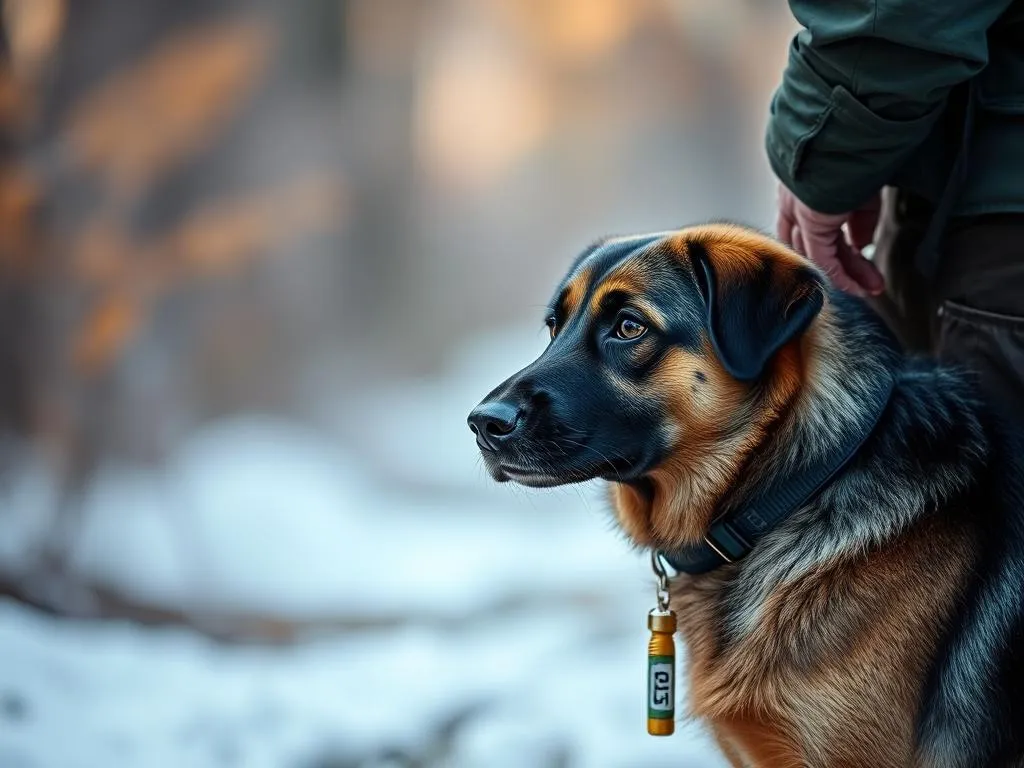
Introduction
A detection dog handler is a specialized professional responsible for training and working with dogs that are trained to detect specific substances or individuals. These dogs play a crucial role in various sectors, including law enforcement, search and rescue operations, and even in private security. The importance of this role cannot be overstated, as detection dogs often provide essential support in maintaining public safety and conducting effective searches.
In this article, we will explore how to become a detection dog handler, covering essential training requirements, skills needed, potential career paths, and helpful tips for success in this rewarding field.
Understanding Detection Dogs
What is a Detection Dog?
Detection dogs are trained canines that can identify specific scents or signals. There are several types of detection dogs, each specializing in different tasks, such as:
- Drug Detection: These dogs are trained to detect illegal substances, such as narcotics.
- Explosive Detection: These dogs are skilled in identifying explosives and canines are often deployed in security settings, such as airports.
- Search and Rescue: These dogs assist in locating missing persons, especially in disaster situations.
The history of detection dogs dates back to World War I, where they were first used for military purposes. Over the years, their capabilities have been harnessed in various fields, demonstrating their versatility and effectiveness.
How Detection Dogs Work
Canine olfaction, or the dog’s ability to smell, is incredibly sophisticated. Dogs have up to 300 million olfactory receptors, compared to a human’s 6 million. This extraordinary sense of smell allows them to detect odors at incredibly low concentrations, making them invaluable in detection roles.
Training methods for detection dogs typically involve positive reinforcement. Handlers use treats, toys, or praise to encourage desired behaviors, which helps the dogs associate specific scents with rewards. This bond between the handler and the dog is critical for effective performance in the field.
Skills and Qualities of a Successful Detection Dog Handler
Essential Skills
To become an effective detection dog handler, you must possess several essential skills:
-
Communication Skills: Clear communication with both the dog and other team members is crucial. Handlers must articulate commands effectively and be able to convey information to law enforcement or rescue teams.
-
Patience and Persistence: Training a detection dog requires patience, as it can take time for the dog to master scent detection. Handlers must also remain persistent in overcoming challenges during training and operations.
-
Problem-Solving Abilities: Detection dog handlers often encounter unexpected situations, requiring quick thinking and problem-solving skills to ensure the safety and effectiveness of their operations.
Personal Qualities
In addition to skills, certain personal qualities can significantly contribute to your success as a detection dog handler:
-
Physical Fitness: The role can be physically demanding, requiring handlers to be in good shape to manage the demands of the job, including walking long distances or navigating challenging terrains.
-
Emotional Resilience: Handlers must cope with the emotional weight of their responsibilities, especially in search and rescue operations. Maintaining composure in high-pressure situations is vital.
-
Ability to Work in High-Pressure Environments: Detection dog handlers often work in fast-paced or dangerous settings, such as during a police operation or disaster response. The ability to stay focused and make quick decisions is essential.
Educational and Training Requirements
Formal Education
While not always required, pursuing formal education can enhance your qualifications as a detection dog handler. Recommended degrees or certifications include:
- Animal Behavior: Understanding canine behavior is crucial for effective training and handling.
- Criminology: Knowledge of criminal behavior and law enforcement practices can be beneficial in law enforcement roles.
Ongoing education and training are essential for keeping up with the latest techniques and methodologies in dog handling.
Specialized Training Programs
Various specialized training programs exist for aspiring detection dog handlers. These programs can be found through:
- Police Academies: Many law enforcement agencies offer training for detection dog handlers as part of their curriculum.
- Private Training Schools: Some private organizations specialize in canine training and can provide comprehensive courses.
Key components of a detection dog handler training program typically include:
- Instruction on canine behavior and training techniques
- Hands-on experience with detection dogs
- Certification preparation
Certifications and Licenses
Certifications are often necessary for individuals working with detection dogs. Some relevant organizations that provide certification include:
- National Police Canine Association (NPCA)
- International Association of Canine Professionals (IACP)
These organizations have specific requirements for certification, often including a combination of written exams and practical assessments.
Gaining Experience
Volunteer Opportunities
One of the best ways to gain experience as a detection dog handler is through volunteer opportunities. Local shelters, rescue organizations, or law enforcement agencies often seek volunteers to assist with canine training and socialization. Benefits of volunteering include:
- Hands-on experience working with dogs
- Networking opportunities with professionals in the field
- Insight into the daily responsibilities of a detection dog handler
Internships and Apprenticeships
Internships and apprenticeships provide valuable real-world experience. Look for opportunities with established detection dog handlers or organizations. These positions often offer:
- Mentorship from experienced handlers
- Exposure to various training methods and techniques
- A deeper understanding of the demands of the job
Networking
Building a network within the field is crucial for aspiring detection dog handlers. Consider:
- Joining Professional Organizations: Becoming a member of organizations like the IACP or NPCA can provide access to resources and networking events.
- Attending Workshops: Workshops and seminars can offer education and opportunities to meet experienced handlers and trainers.
Career Paths for Detection Dog Handlers
Law Enforcement
Detection dog handlers often find roles within police and military operations. Responsibilities typically include:
- Conducting searches for illegal substances or explosives
- Assisting in criminal investigations
- Providing support during high-risk operations
Search and Rescue
Another significant career path is in search and rescue operations. Handlers may work with emergency response teams to locate missing persons, particularly in disaster recovery efforts. Opportunities exist in:
- Local emergency services
- Non-profit organizations focused on rescue operations
Private Sector
Detection dog handlers can also explore roles in the private sector, including:
- Security Firms: Many security companies employ detection dogs for various purposes, including event security and facility protection.
- Customs and Border Protection: Detection dogs are used to identify smuggled goods and illegal substances at borders.
Freelance opportunities may also arise for experienced handlers, allowing for greater flexibility in their work.
Day-to-Day Responsibilities
Training and Bonding with the Dog
Daily routines for a detection dog handler often revolve around training and bonding with their canine partner. This includes:
- Conducting scent detection exercises
- Engaging in physical activity to maintain the dog’s fitness
- Building a strong bond through positive reinforcement
Handling and Deployment
Handlers must be prepared for various deployment scenarios. Responsibilities include:
- Implementing safety protocols during operations
- Deploying detection dogs in specific situations, such as search missions or security checks
- Ensuring the well-being of the dog during and after deployment
Reporting and Documentation
Maintaining accurate records is essential for detection dog handlers. This includes:
- Documenting training progress and performance
- Writing reports for law enforcement or organizational stakeholders
- Keeping records of certifications and ongoing education
Challenges and Rewards of Being a Detection Dog Handler
Common Challenges
While being a detection dog handler is rewarding, it comes with its challenges:
- Emotional and Physical Demands: The job can be taxing on both the body and mind, requiring handlers to manage stress and fatigue.
- High-Stress Situations: Handlers often work in dangerous environments, necessitating quick decision-making under pressure.
Rewards and Job Satisfaction
Despite the challenges, many handlers find their work deeply fulfilling:
- Personal Fulfillment: Helping to save lives and contribute to public safety can provide immense satisfaction.
- Career Advancement: Opportunities for specialization and advancement exist within the field, allowing handlers to pursue areas of interest.
Tips for Aspiring Detection Dog Handlers
Starting Your Journey
If you are interested in becoming a detection dog handler, consider the following steps:
- Research: Learn as much as you can about the role and the different types of detection dogs.
- Education: Pursue relevant education or certifications to enhance your qualifications.
- Gain Experience: Seek volunteer opportunities or internships to build your skills and knowledge.
Staying Informed and Updated
The field of detection dog handling is continually evolving. It’s essential to stay informed about the latest trends and techniques. Resources for further learning include:
- Books: Read about canine behavior and training methodologies.
- Websites and Forums: Join online communities to connect with other handlers and trainers.
Building a Support System
Finding mentors and building a community of fellow dog handlers can significantly enhance your journey. Consider:
- Joining Groups: Engage with local dog handling organizations or online forums.
- Participating in Events: Attend workshops and conferences to meet experienced handlers and expand your network.
Conclusion
In summary, becoming a detection dog handler is a fulfilling and impactful career choice. By understanding the roles and skills required, pursuing the necessary education and training, and gaining hands-on experience, you can set yourself on a successful path in this field. The journey may be challenging, but the rewards of making a difference and working alongside these incredible dogs are well worth the effort. Embrace the opportunity, and take the first steps toward your goal of becoming a detection dog handler.








